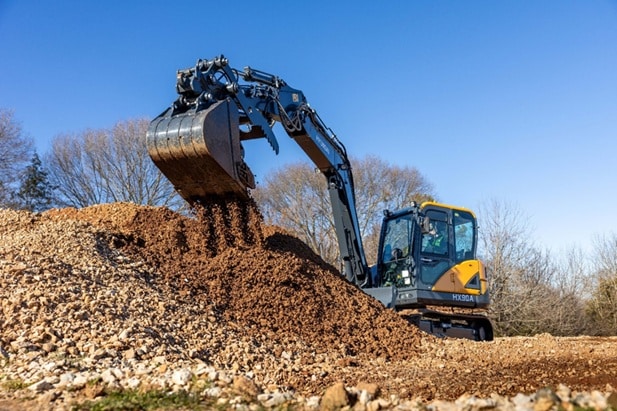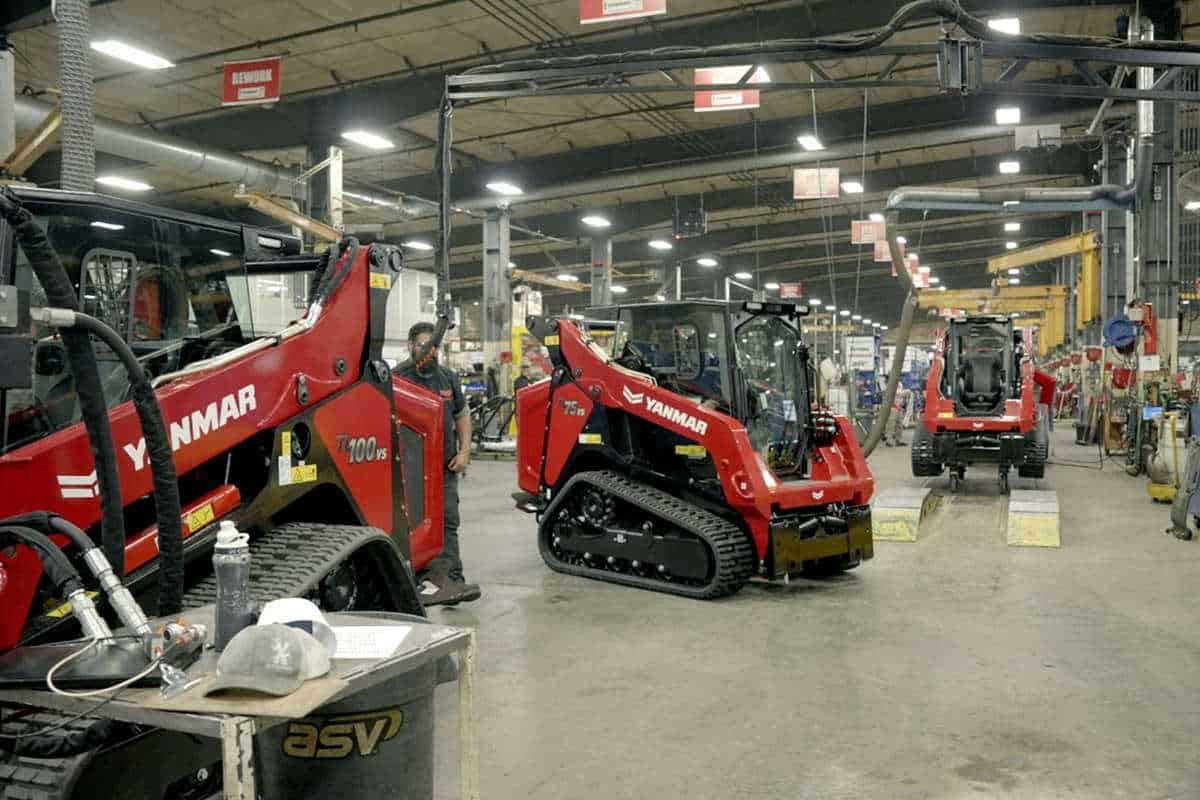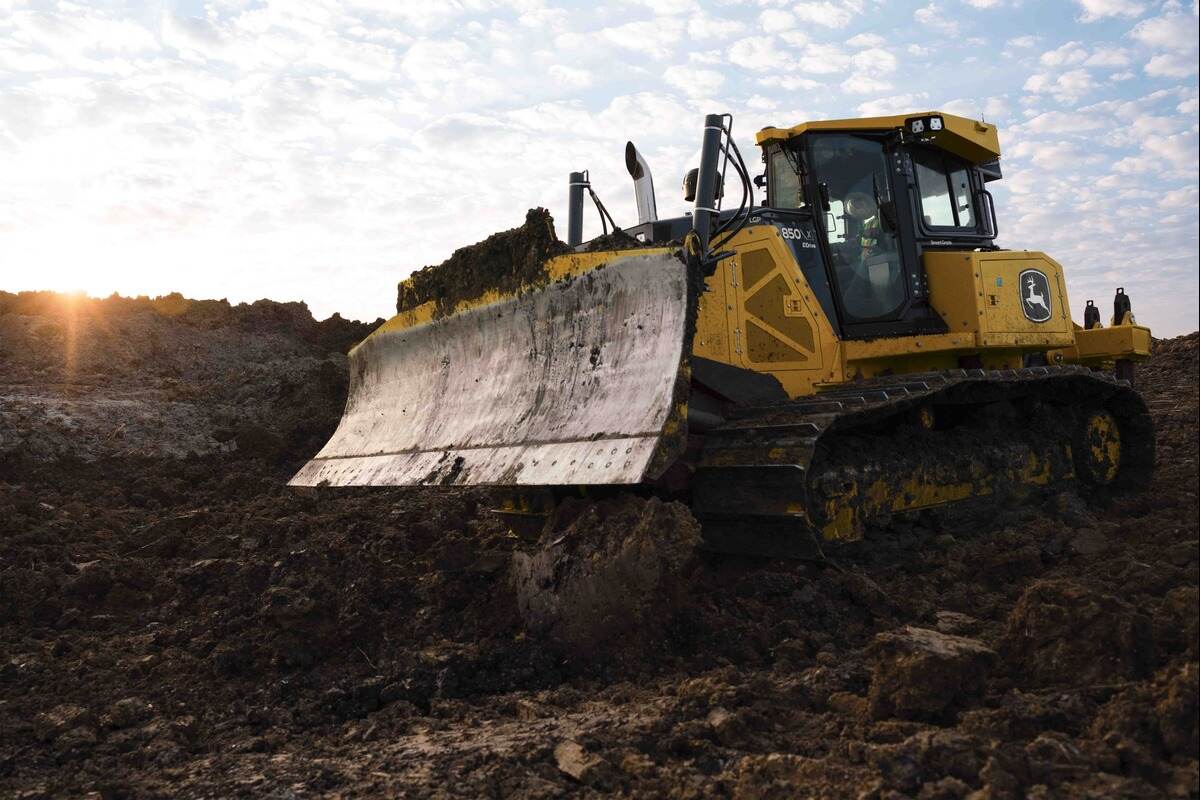Excavator Maintenance Tips for Productivity, Longevity
Daily maintenance – what you might call “sweating the small stuff” – can yield big results in keeping your hydraulic excavator on the job and maximizing its productive lifespan. The following is a list of things to consider to keep your excavator operating at peak performance.
Know the Jobsite
As important as it is to know your machine, its capabilities and maintenance requirements, it’s also crucial to know your jobsite and understand the potential hazards that can cause trouble for even the best-maintained excavators. Walk the jobsite, making note of any anomalies in terrain, infrastructure elements – both underground and above-ground – and all other equipment and materials deployed on the project.
Track Tension
A frequently overlooked service point on excavators is track tension. A track running loose will accelerate wear, causing unnecessary downtime and putting a stop to production for the installation of a new track. Similarly, a track running too tight will greatly increase wear on the other track system components, including traction motors, sprockets and front idlers. Refer to the operator’s manual and check track sag measurements on a regular basis to ensure the track tension is correct.
Grease
Grease is the lifeblood of all pins and bushings. Operators should grease all pins and bushings daily. The operator’s manual will identify each grease point and provide recommendations for quantity and grade of grease. If multiple operators are using a single machine, you can mark less obvious grease points, such as the turntable bearing, with orange marking paint around the grease nipple to remind all users to perform this task. As with under-greasing, over-greasing can also be problematic. One to three shots of grease is typically plenty to do the job. Using more wastes money, presents a potential environmental hazard and can cause a considerable mess.
Hydraulic Oil
Hydraulic oil can be misleading because, although it may look clean (just like engine oil), it breaks down and loses its viscosity and its ability to hold contaminants in suspension. Clean oil helps protect all moving parts in the system. Hydraulic systems are designed for precise tolerances, and most hydraulic failures can be traced back to contaminated hydraulic oil or even the wrong type of hydraulic oil.
One of the many important functions of hydraulic oil is that it absorbs moisture in the system and keeps it away from the hydraulic components. You may not think that rust can be a problem in a sealed hydraulic system that is always full of oil, but it is. Service personnel have disassembled failed hydraulic pumps and hydraulic system components and have found rust on the rotating group and in the housings.
Don’t make the mistake of thinking that, just because hydraulic oil looks good, it is. By the time hydraulic oil becomes cloudy, it is far beyond the point when it should have been changed and has lost much of its ability to properly protect the components in the hydraulic system. Most equipment manufacturers suggest a hydraulic oil change interval in the 2,000- to 4,000-hour range, but every machine is different. Your operator’s manual will provide a specific servicing timetable and oil requirements.
Tier 4 Engine Maintenance
Tier 4 emissions control technology has had minimal impact on operations or maintenance. Engines achieve mandated emissions levels via cooled exhaust gas recirculation (CEGR) or selective catalytic reduction (SCR) technology. CEGR recirculates exhaust back into the engine to reduce NOx formation, and uses a diesel particulate filter (DPF) to capture pollutants. The DPF is usually designed to last for thousands of hours and is readily accessible, so replacing it is easy, even on machines with heavy work schedules that require more frequent changes.
SCR technology reduces particulate matter in the combustion chamber and treats exhaust gases with diesel exhaust fluid (DEF) to eliminate pollutants. Most SCR systems require regular filling of the DEF tank, which can be done as part of normal maintenance when checking fluid levels, or when refueling. On Hyundai HX series excavators, the DEF tank is installed next to the tool box. Its inlet is remotely located for easy access and convenient supply. A red lamp signal warns of overfill.
Record Keeping
Record keeping may be the most tedious and time-consuming of all tasks, but up-to-date service records and invoices for oil, filters and repairs can provide invaluable information in the future when evaluating the service life of your machine. All equipment will come to the end of its service life eventually, and if you keep accurate information, you will have a baseline to evaluate the performance of the machine and make an informed decision about whether to buy the same manufacturer’s product again or make a switch to a different brand.
Proper service records are also helpful when working with your dealer if an issue with your machine arises. Accurate records will prove to both your dealer and the manufacturer that you care about your equipment and that you are servicing the machine as required.
This principle can be crucial when dealing with warranty claims and is necessary whether you have an entire fleet of excavators or just a single machine. Good service records also can help boost resale value.
This article was written by Brad Marcotte, District Service Manager, Hyundai Construction Equipment Americas.
RELATED: Hyundai Recognizes Dealer & Supply Reps Tags: Hyundai Construction Equipment Americas, March/April 2019 Print Issue





